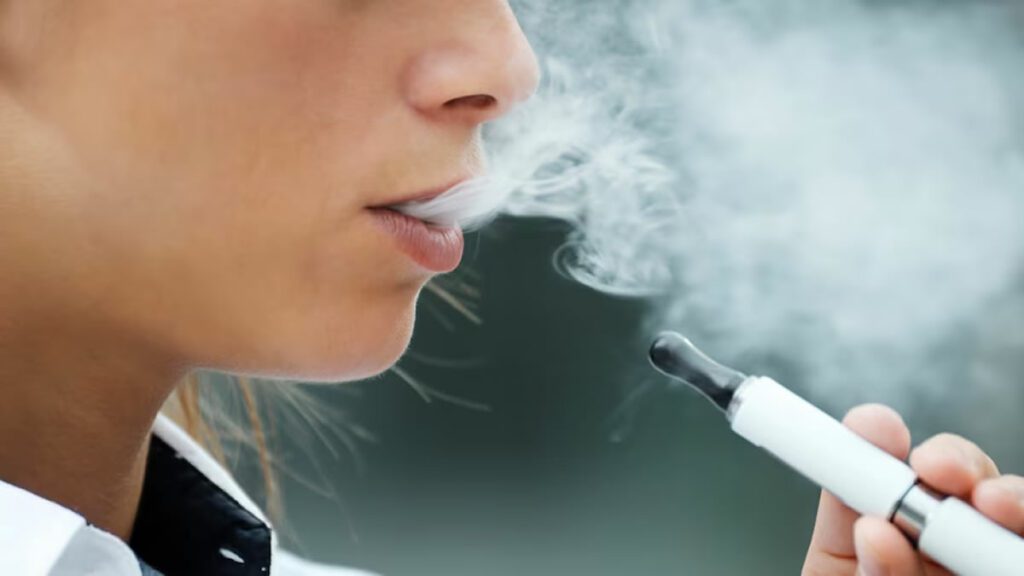As e-cigarettes gain popularity as a potentially healthier alternative to traditional smoking, medical professionals are increasingly warning about the associated health risks. One surprising concern that has recently come to light is the phenomenon known as "vape tongue," which refers to a temporary loss or reduction in the sense of taste among e-cigarette users.
Understanding the Vaping Process
E-cigarettes, powered by a battery, contain a heating element that vaporizes a liquid (often referred to as "e-liquid" or "vape juice") containing nicotine, flavorings, and other additives. Users inhale the resulting vapor, a process known as "vaping." In Germany, nicotine-containing e-cigarettes are subject to the Tobacco Products Act and the Tobacco Products Ordinance, which impose strict regulations on their sale, including a maximum nicotine content of 20 milligrams per milliliter and a ban on certain additives.
According to a survey conducted by the Federal Institute for Risk Assessment (BfR), approximately 6% of the German population, primarily men, engage in vaping. Nearly 90% of respondents reported having smoked traditional cigarettes before switching to e-cigarettes, while two out of three individuals began vaping in addition to smoking.
Health Risks Associated with Vaping
While often perceived as less harmful than smoking, vaping has been linked to various health concerns. Inhaling e-cigarette vapor can lead to respiratory issues, such as coughing, wheezing, and shortness of breath. In severe cases, it may cause "vaping-associated lung injuries" (VALI), which can result in serious lung damage. Studies also suggest that vaping may increase blood pressure and heart rate, potentially elevating the risk of cardiovascular disease.
The chemicals found in many e-liquids, such as propylene glycol and glycerin, can cause inflammation in the airways and increase the risk of heart problems. Added flavorings may also be harmful, particularly when they release toxic substances upon vaporization. For example, some flavors, like diacetyl, can lead to a respiratory condition known as "popcorn lung."
Nearly all e-cigarettes contain nicotine, which is highly addictive. The rapid absorption of nicotine through vaping can lead to a higher risk of addiction, especially among young people who use e-cigarettes as a gateway drug. Studies show that e-cigarette use among adolescents may increase the likelihood of future tobacco consumption.
The Emergence of Vape Tongue
A relatively new and under-researched issue is the growing prevalence of "vape tongue." Affected individuals report a diminished sense of taste, with the degree of taste loss varying depending on individual consumption habits. While scientific studies on this issue are lacking, an increasing number of medical professionals are warning about this potential health consequence online.
Dr. Stewart from the Chelsea Dental Clinic in London is one of the experts raising awareness about the dangers of vaping. In a video, he explains that "vape tongue" is a condition in which an individual loses their sense of taste due to excessive vaping. He attributes this problem to the increasing use of disposable e-cigarettes with flavored liquids, which can lead to higher nicotine intake and a dry mouth, ultimately impairing the sense of taste. In some cases, this may even result in a complete loss of taste.
Alleviating the Effects of Vape Tongue
The reassuring news is that vape tongue is typically a temporary phenomenon that can resolve on its own. Taste buds generally regenerate within 48 hours of stopping smoking. However, medical professionals still caution against the harmful effects of vaping and offer additional tips to help individuals recover from vape tongue more quickly.
- Hydration: Dry mouth, a common side effect of vaping, is a frequent cause of vape tongue. Drinking plenty of water is essential to keep the mouth moist and promote saliva flow.
- Mouthwash: Regularly rinsing with an antimicrobial mouthwash or a mild saltwater solution can help reduce bacteria in the mouth and refresh the tongue. Some experts also recommend using a moisturizing mouthwash.
- Tongue Care: Good oral hygiene is crucial. Regularly cleaning the tongue with a tongue scraper can remove buildup and improve the sense of taste.
- Reducing Vape Consumption: When taste is impaired, it may be helpful to temporarily reduce e-cigarette use to allow the mouth time to recover. As a potential bonus, this brief pause may even mark the beginning of the process of quitting smoking altogether.
- Avoiding Flavored Liquids: Since many flavored liquids can exacerbate the issue of vape tongue, switching to unflavored liquids may help avoid irritation.
As the vaping industry continues to evolve and more information about the potential health risks associated with e-cigarettes comes to light, it is crucial for consumers, healthcare professionals, and policymakers to stay informed and make decisions based on the latest scientific evidence. By raising awareness about issues like vape tongue and offering practical solutions, experts aim to promote public health and encourage individuals to make informed choices about their well-being.

Vape Content Creator | Flavor Reviewer | Lifestyle & Vape Culture Editor
Emily Carter is a vape-focused content creator specializing in flavor reviews, device aesthetics, and lifestyle-oriented vaping content. With hands-on experience testing disposable vapes and pod systems, Emily delivers clear, visually driven insights designed for adult consumers.








